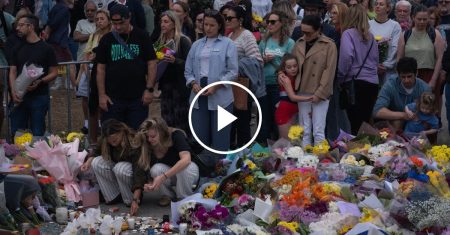A New Chapter in U.S. Immigration Enforcement
The Trump administration has taken its most dramatic step yet in its hardline immigration policy by organizing a deportation flight to Iran, a country known for its severe human rights challenges. This unprecedented move represents a significant escalation in the administration’s efforts to remove migrants from U.S. soil, regardless of the conditions they may face upon return. While previous administrations have generally exercised caution regarding deportations to countries with documented human rights abuses, the current administration appears to be charting a different course, prioritizing strict enforcement of immigration laws above humanitarian considerations that have traditionally influenced such decisions.
Human rights organizations and immigration advocates have expressed profound concern about this development, pointing to Iran’s well-documented record of persecution, arbitrary detention, and harsh treatment of dissidents and certain minority groups. Many of those facing deportation fled Iran precisely because of such conditions, seeking asylum in the United States based on claims of persecution or fear of mistreatment. The decision to return these individuals to a country where their safety cannot be guaranteed raises serious questions about America’s commitment to its international obligations regarding the protection of refugees and asylum seekers. Some legal experts have questioned whether such deportations might violate the principle of non-refoulement, which prohibits returning individuals to places where they face torture or persecution.
The timing of this deportation initiative coincides with escalating tensions between the United States and Iran, adding a geopolitical dimension to what is already a contentious immigration policy. Critics suggest that using vulnerable migrants as pawns in international relations undermines America’s moral standing and contradicts its historical role as a haven for the persecuted. Administration officials, however, defend the action as a necessary enforcement of immigration laws and maintain that proper screening procedures have been followed to ensure that those being deported do not have valid claims for protection under U.S. law. They emphasize that individuals who have exhausted all legal avenues to remain in the country must face the consequences of their immigration status, regardless of their country of origin.
For the individuals on this flight, the consequences are profound and potentially life-altering. Many have established deep roots in American communities, with some having lived in the United States for decades. They leave behind families, careers, and the lives they’ve built, facing an uncertain future in a country that some barely remember or have never known. The human cost of such enforcement actions extends beyond those directly affected, creating ripple effects of fear and anxiety throughout immigrant communities across the nation. This atmosphere of uncertainty has led many to retreat further into the shadows, avoiding interaction with government institutions even when needed for health, education, or safety concerns.
The legal battles surrounding this deportation flight highlight the complex intersection of immigration enforcement, human rights obligations, and judicial review in the American system. Last-minute court challenges have sought to halt the deportations, with attorneys arguing that their clients face genuine risks upon return and have not received adequate opportunity to present their claims for protection. These cases underscore the ongoing tension between executive authority in immigration matters and the role of courts in ensuring that enforcement actions comply with both domestic and international law. The outcome of these legal confrontations will likely shape the parameters of immigration enforcement for years to come, establishing precedents that future administrations will either follow or work to overturn.
As this deportation flight proceeds, it forces a national reckoning with fundamental questions about American identity and values. The debate transcends partisan politics, touching on how the United States views its role in the world and its responsibilities toward those seeking safety within its borders. Supporters of stricter enforcement see these measures as necessary to maintain sovereignty and the rule of law, while critics argue that they represent an abandonment of America’s humanitarian traditions and moral leadership. Whatever one’s perspective, this moment marks a significant milestone in American immigration policy – one that will be scrutinized by historians, policymakers, and ordinary citizens as they assess this chapter in the nation’s ongoing struggle to balance enforcement with compassion, security with humanity, and national interest with universal human rights.








